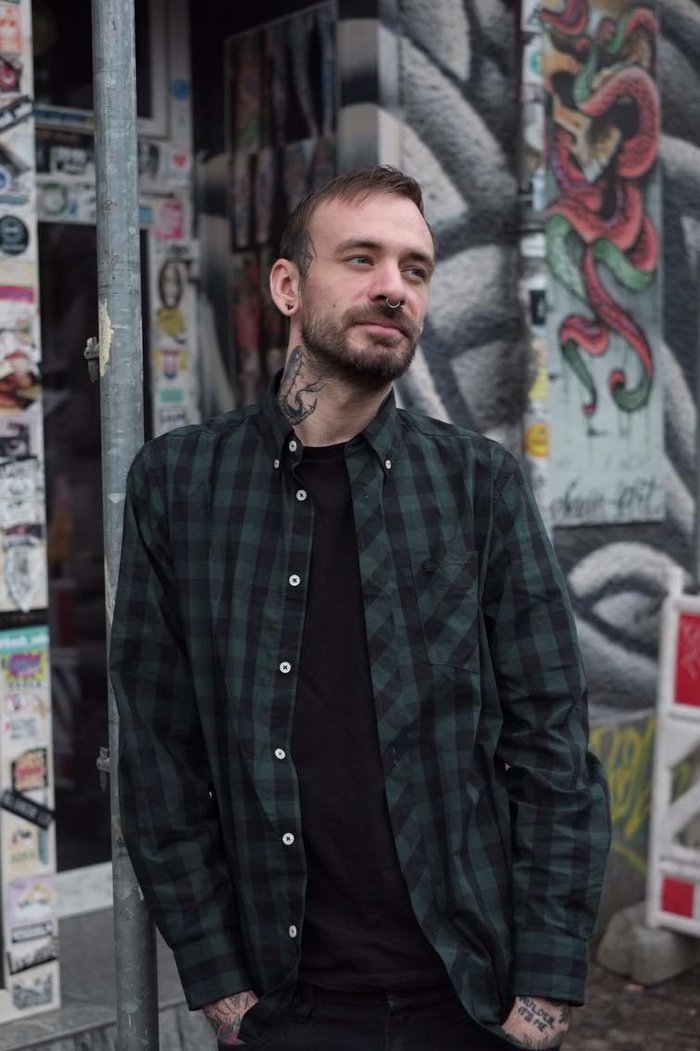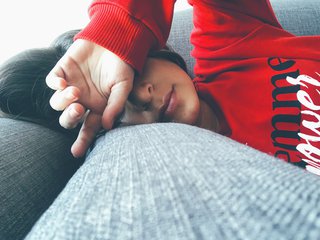Living with long-term side effects
Stewart (they/them), talks about the impact treatment side effects have had on their life, and dealing with other people’s expectations.

I have chronic myeloid leukaemia (CML), and need to take a daily medication called a tyrosine kinase inhibitor (TKI). I’m now on my fourth version of them, as all the others have not been able to control my cancer. I’ve found the cancer itself doesn't really impact my daily life. It’s the effects of treatment that have an impact. My treatment has had lasting side effects for me, including pain and weakness in my legs, brain fog and fatigue.
So many side effects are due to the treatment of my cancer, not the cancer itself, which is sometimes tricky for other people to understand.
It’s really annoying, because people think your cancer is doing well, so why aren’t you well? It's like, well the reason I'm doing well, is because I'm taking more medication. And that's why things are rough.
The problem with my legs was annoying, because I used to cycle all the time, I used to walk for miles, I used to be quite active. And then losing that has been horrible. Because I’ve lost that mental space I had through cycling and walking. I’ve also lost a lot socially, because I used to cycle with friends or go out dancing. Losing those things, selling my bike, and not being able to go out with friends has been really difficult.
Living with uncertainty
My cancer is quite stable, but recently the number of leukaemia cells has been going up. At the moment I’m on a super low dose of my medication, but if my cancer continues to increase they might need to up my dose. So I’ve always got that threat hanging over me, that if I need to take more medication, my symptoms might get worse, and then my quality of life could get worse.
Even to get into my office of the charity I set up (OUTpatients, a charity supporting people who are queer and have cancer), I need to get up three flights of stairs, which I find difficult. So I worry about whether I’ll be able to get to my office if my legs get worse.
Even the small things are worrying. Like most nights, my eyes are irritated and bloodshot. I spoke to my specialist about it, and his response was just “let me know if your vision changes” and that’s it. My specialist doesn’t seem concerned, but I’m left worrying “Well, is my vision going to change?” It’s really difficult dealing with that uncertainty.

Find out more about side effects
Tips and real stories about side effects like hair loss, peripheral neuropathy, brain fog, sleep problems, infection risk, nausea and sore mouth.
It’s like there’s this difficult balance, because this treatment you’re taking is disabling you in some way, but you know the treatment is also saving you.
My nurses are nice, and they acknowledge I’ve been really unlucky with the side effects I’ve had. But it doesn't change the day to day. And it doesn't change the expectations of the people in my life, because they don't understand it to the same level. They don't understand the complexity of it. They don’t understand when I say I'm tired, I’m fatigued. It’s not just “have a coffee” tired, it's “I need to sleep for a day” tired.
How people can help
For me, what helps is people giving me the space to talk and saying “tell me more”, “how does that work?”, “how can I help?”, “is there anything I can do?” That’s much more helpful than people saying “you’re so brave”, “you don’t look like you have cancer” or “you’ll get better.”
I think we need to move away from this idea that cancer is a temporary thing and that once it’s treated, life just goes back to how it was. Because for so many of us, it has long-term effects. Mentally, I feel that you can never fully go back. But then also physically, it can worsen other conditions. It can make your mental and physical health worse. If you already have a disability, it might make that worse. And some people acquire disabilities through cancer treatment as well.
Something that’s helped me think about my life in relation to having leukaemia is thinking of it as a disability.
Because legally, cancer is considered a disability. But I think a lot of people aren’t aware of that. Once you understand that, you can enter that kind of mental space and access that support with things like work and benefits, because you know you’re entitled to it.
I think another one of the things that helps me get through it, is helping others. That’s a big thing for me. And that's why I do what I do. My experience of seeking support as a queer person with blood cancer led me to set up OUTpatients.
The biggest advice I could give to others, and to myself, is to be kind to yourself.
I spent a long time chasing my old life, level of activity and mental state. It took me a good few years to come to terms with where I was at, and that I would always be a cancer patient. I think I was frustrated, angry even, but not able to express it. So it came out in resentment towards my body and the changes that cancer and treatment brought.
But, when I took the time to adjust, accept the position I was in, and change my perspective to look forward instead of backwards, it became easier to accept my side effects and limitations.
I stopped comparing myself to who I used to be and learned to live with who I am, chronic cancer included.
